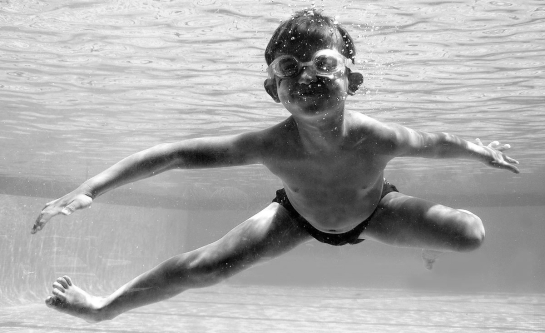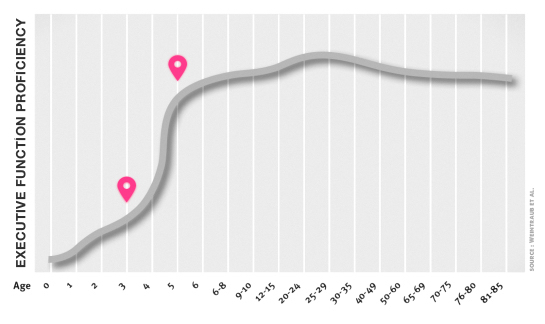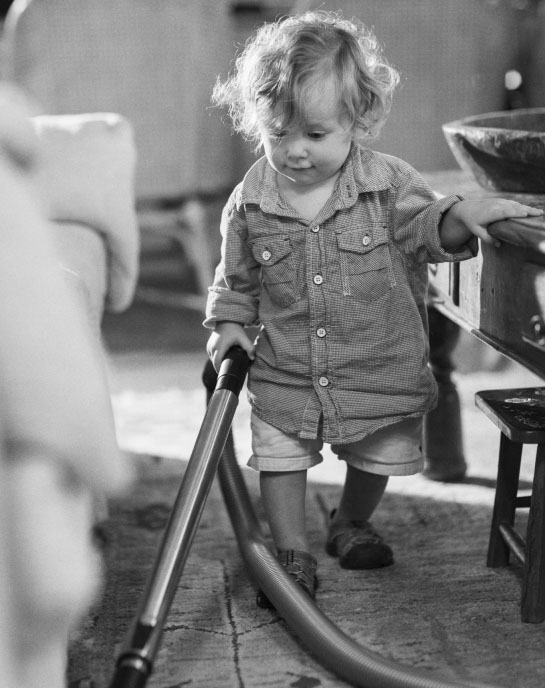Executive functions – 3 key skills.
This is one of the other cornerstones in the formation of intelligence: the development of executive functions. Executive functions play an essential role: they are the cognitive skills which enable us to act in an organised way to achieve our objectives. The experts identify three main types: working memory, inhibitory control and cognitive flexibility.

When we wish to do something, whether it be solving a maths problem, telling somebody we love them, learning to play the piano or learning a dance step, we need to draw on three skills which are known as executive functions: we need a good working memory, which enables us to retain information in our memory and to organise it; good inhibitory control, which enables us to inhibit distractions in order to maintain our concentration and to control our impulses, our emotions and inappropriate behaviours; and finally, we need cognitive flexibility in order to be creative and to adjust our strategies in the event of mistakes.
These executive functions play a fundamental role, so make due note of them. They enable us to function, to perform actions in the world under the guidance of our intelligence. When we possess a good memory, good self-control and good flexibility, we can function successfully and navigate the currents of life self-confidently.

Without them, by contrast, we would simply be unable to intentionally plan and control our behaviour in order to achieve any kind of goal. Every action and learning situation would be rendered difficult. Indeed, experts consider these skills to form the biological foundations of learning.
The biological foundations of learning.
'Going to school with a solid grounding in these executive functions is more important for children than knowing their letters and numbers', according to The Center on The Developing Child at Harvard University. If children possess weak inhibitory control, the slightest distraction can affect their concentration; waiting their turn to speak or act is difficult for them, they have trouble controlling their emotions and they are lacking in perseverance. If their working memory is insufficiently developed, they forget instructions, they have trouble organising their actions and they can't remember the meaning of the paragraph they have just read. Lastly, if they lack cognitive flexibility, they have great difficulty in reorganising their actions if need be, they rapidly get discouraged if their strategy isn't working, and they don't necessarily recognise their mistakes. 'Even when only a couple of the children have underdeveloped executive function abilities', explains The Center on The Developing Child, 'an entire classroom can become disorganized, and precious time will be diverted from productive learning activities. This can have a profound impact on the overall climate of the classroom and is often reported by teachers as a source of exasperation and burnout.' The children themselves sense that they are at a big disadvantage compared to their classmates. They may be unable to keep up during a complex game, for example, and so can find themselves sidelined by their peers.
By contrast, numerous studies have shown that children who have developed a good working memory, good inhibitory control and good flexibility perform better at school and in adulthood they do better in their exams, get into the best universities and secure more rewarding jobs. But above and beyond that, and this is what really interests us, they have the means to achieve the goals which they set themselves in life.
More predictive than IQ.
Numerous studies have shown that when we possess well-developed executive functions, which is to say that we possess a good working memory, good inhibitory control and good flexibility, this offers better chances of success and fulfilment than a high IQ.
A study known as the Marshmallow Test was conducted in the 1960s by the psychologist Walter Mischel from Stanford University. Its aim was to measure the link between the development of one of these executive functions - inhibitory control - and success in adult life. To measure this, Walter Mischel tested 500 children aged 4 whom he then monitored over the course of nearly 30 years. The test involved placing a marshmallow in front of each child and then leaving them alone with the marshmallow for about fifteen minutes. The psychologist explained to the children: 'If you don't eat the marshmallow while I'm out of the room, you'll get an extra one when I get back.'
Not all the children showed the same level of patience, and those who managed to wait did not necessarily have the highest IQs. The children who managed to control themselves and wait at the age of 4 had more friends during adolescence than the others, managed stress better, had higher self-esteem, expressed themselves better, got into the best universities and as adults had more rewarding jobs - even if they had a lower IQ. They also had far fewer problems with alcohol and drugs at the age of 32 and were in better health than those who - at 4 - had been unable to resist the temptation of the marshmallow.
'Providing the support that children need to build these skills at home, in child care and preschool programs, and in other settings they experience regularly is one of society’s most important responsibilities,' explains The Center on The Developing Child at Harvard University.
A potential which develops - or does not.
'Contrary to popular belief, learning to control impulses, pay attention, and retain information actively in one’s memory does not happen automatically as children mature,' explains The Center on The Developing Child. However fundamental these skills may be, we are not born with them. We are born with the potential to develop them - or not. In order to develop them, the young human being must be in a position to exercise them when nature dictates, and not all children have the opportunity to do that.

As you have no doubt noticed with your own children, at the age of 2½ the executive functions of human beings are not highly developed: children quickly forget what they wanted to say even as they are speaking, they get distracted quickly and their have trouble controlling their behaviour or changing their strategy if it isn't working. This is quite normal – their executive potential is just starting to develop and will soon develop very rapidly between the ages of 3 and 5. This sensitive period really is a window of opportunity which is not to be missed, since what is constructed during this period forms the foundation on which executive skills will be deployed and refined right up to the beginning of adulthood.
How can we help?
The Center on The Developing Child is very clear on this point: the environments which are conducive to the development of these skills are those in which the adult, from an early stage, leads the child gradually towards an increasingly proficient level of autonomy. When we encourage children to do something on their own – to put their shoes on themselves, to tidy their own things, to soap themselves or to shell peas next to us – we are helping them to exercise their executive functions: they have to achieve a specific goal and in order to do so they have to focus their attention, control their movements and inappropriate emotions, plan their actions and remain flexible if mistakes occur. They alone, through their own actions, can construct their own executive intelligence. Adults can only encourage them, from the age of 3, to do for themselves what they are capable of doing themselves, by being on hand and offering encouragement but without doing it for them, and then taking an increasingly back-seat role – nothing more. There is no need to seek out special activities, because at the age of 3 the ordinary is itself extraordinary.

Do the housework at age 4 for a better future.
A longitudinal study has shown that helping with daily chores from the age of 3 facilitates the development of fundamental skills. The researcher Marty Rossmann studied the lifestyles of 84 children at the ages of 3, 10, 16 and around 25. The results were astonishing: the self-control, sense of responsibility and level of autonomy of the children who helped with household chores from the age of 3 were more developed in adulthood compared to those who hadn't carried out household chores or had started in adolescence. They also had better relationships with their families and friends (we know that developing executive skills is conducive to good social relationships), performed better academically and were more financially independent. She concluded that helping with household chores at the age of 3 (and thus right in the middle of the biological period for developing executive skills) was a more decisive criterion than QI for success in adulthood. So let's allow our 3-year-olds – who are only too willing anyway – to get out the dustpan and brush!
When intelligence defends itself against us.
The 3-year-old child is therefore a person of action and they have to do things for themselves in order to train their executive functions. This means that when they insist on doing things for themselves, they are not acting capriciously, obsessively or randomly: it is an expression of their intelligence, which is insisting on exercising itself. And when they exercise their intelligence, don't try to do things for them, because you'll find them erecting defences.
I'd like to share an anecdote with you. In Gennevilliers there was one three-year-old who was used to having everything done for him. In the mornings he would slouch on the bench in the corridor and gaze into the void, remaining totally passive while the adult took off his shoes and put on his slippers. Concerned about his executive development, I spent a bit of time with him every day to show him how to take off and put on his shoes himself. After just two days, he started to enjoy doing it himself. During the lunch break on the third day, he was in the corridor putting on his shoes while he waited for his grandmother. Suddenly I heard a piercing cry which was so primal that I didn't even recognise it as the voice of the little boy. His grandmother, who was in a hurry, had arrived and tried to take his shoes off him so that she could put them on herself. To defend himself, the little boy took back the two shoes and started running towards the school exit with his grandmother in hot pursuit. He stopped and sat down in tears on another class bench, no doubt dreading a renewed assault from his grandmother, who lost no time in catching up with him: 'You naughty boy! We're in a hurry, I'm going to put on your shoes for you!' I said to his grandmother: 'He just wants to do it himself, it's important to him. He wants you to let him do it.' And I stood between the child and his grandmother and encouraged the child to put on his shoes: 'Go on, put on your shoes. Your grandmother will wait and I'll stay here.' He calmed down and lovingly put on his shoes while his grandmother looked on angrily and impatiently.
And so when we refuse to let a child aged between 3 and 5 button up their own jacket for lack of time and they protest violently, it is not the child who is reacting against our maladroitness but rather human intelligence itself, which is rebelling because its development is being impeded. This is a negative indicator that the child is in a sensitive period. By contrast, if we do not impede their actions, we witness them concentrating extraordinarily hard in order to achieve an astonishing level of precision, and deriving genuine satisfaction and pleasure from it. Such strong satisfaction is the positive indicator of a sensitive need which has been fulfilled.
The promise of social fulfilment.

The brain circuits associated with the executive functions are located in the prefrontal cortex, which is itself connected to structures which manage stress and the emotions. If we have sound executive functions, we are better able to cope with stress, analyse and express our own emotions serenely, and understand the emotions of others. As a result, we are better placed to resolve or avoid conflictual relationships. This is very clearly confirmed by various studies: well-developed executive functions facilitate friendly and empathetic relationships which are durable and harmonious.
'If you want your children to do well at school and in life, help them to develop sound executive functions. These skills are really important and often more predictive than IQ', observes Adele Diamond, an international expert in executive functions.
Points to remember.
Between the ages of 3 and 5, human beings very rapidly develop their executive functions through their own activities. If they are properly developed, they will enable the child to function and to carry out any kind of task successfully. Whatever kind of environment the child is in, whether at school or at home, we therefore need to help them to develop these functions, before we even think of teaching them letters, numbers or anything else. The rest can wait. In order to achieve this, we need to adopt a simple approach towards our children right from birth and in relation to every activity of daily life: 'You can do it, you're going to do it. Even if takes time, I know you're going to manage it.'
The development of executive functions was the cornerstone of our work in Gennevilliers. It enabled the children to joyfully immerse themselves in learning and to blossom in their relationships with each other. The way in which we went about supporting the deployment of these essential skills is described in the book “The Natural Laws of the Child”. To state things briefly, we centred our approach on progressive and supported autonomy, on giving the children the opportunity to carry out practical everyday activities, on constant language guidance, on a rich and supportive social environment, and on allowing extended periods of free play in the playground.
Further reading
National Scientific Council On The Developing Child, Building The Brain’s “Air Traffic Control” System: How Early Experiences Shape The Development of Executive Function, Working paper 11, Center on the Developing Child - Harvard University.
TEDx Adele Diamond - Turning some ideas on their heads.
Enhancing and Practicing Executive Function Skills with Children from Infancy to Adolescence, Center on the Developing Child - Harvard University.
L'attention et le contrôle exécutif. [Attention and Executive Control] Lecture by Stanislas Dehaene, Collège de France Diamond, A., & Lee, K. (2011).
Interventions shown to aid executive function development in children 4 to 12 years old. Science (New York, N.Y.), 333 (6045), 959–964.

